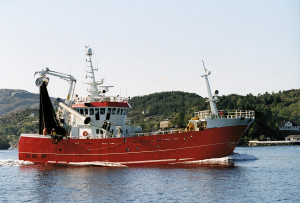اوروبا تشرع الصيد الاستنزافي
الصيد الاستنزافي اصبح في اوروبا مشروع هيكليا. هذو نتيجة خطة الصيد المتعدده سنويا في بحر البلطيق والتي تم الاتفاق عليها بين دول الاتحاد الاوروبي والبرلمان الاوروبي هذا الاسبوع. الحزب من اجل الحيوان نبه بان ما تعاقد من اجله لا يتماشى مع مجموعة من الاتفاقيات التي تهدف بايقاف الصيد الاستنزافي على بعد 2020. “هذه الخطة لا تشرع فقط الصيد الاستنزافي في بحر البلطيق بل وبطريقة غير مباشرة ايضا في بحر الشمال وكل مياه الاتحاد الاوروبي،” تقول البرلمانية الاوروبيةانيا هازكمب، والتي وباسم الحزب من اجل الحيوان شاركت في المفاوضات.

المفاوضات حول خطة الصيد في بحر البلطيق والتي دامت اشهر كانت في البدء صعبة. الوفد المفاوض في البرلمان الاوروبي دعا لوقف الصيد الاستنزافي بحلول 2020. ارجاع الصيد الى مستوى من الاستدامة اصبح ضرورة لضمان عدم استنزاف بحارنا. سبعة انواع من ثمانية من الاسماك في بحر البلطيق مهددة بسبب صيد الاستنزاف وعوامل اخرى. البحر الابيض المتوسط جد مهدد وكذلك في بحر الشمال تعاني كثافة الاسماك من مشاكل. خطة الصيد لعدة سنوات لبحر البلطيق كانت فرصة لبداية معالجة مشكل الصيد الاستنزافي،” حسب انيا هازكمب.
هولندا ودول اخرى من الاتحاد الاوروبي رفضت فعلا اثناء المفاوضات ان تقبل بحدود صيد مستدامة. “دول الاعضاء في الاتحاد الاوروبي قدمت كل الاستثناآت لتستمر في الصيد اكثر. الاغلبية من وفد التفاوض تحت ضغط الدول الاعضاء والمفوضية الاوربية ذهبت مع التيار. العواقب كبيرة ولن تقتصر فقط على بحر البلطيق،” هكذا حذر الحزب من اجل الحيوان، والذي لم يكن موافقا على صيد الاستنزاف.
“خطة بحر البلطيق ستكون بمثابة أساس لبحر الشمال، البحر الأبيض المتوسط والمياه الأوروبية الأخرى. الصيد الجائر الهيكلي في أوروبا وبالتالي المقنن”، حسب انيا هازكمب.
هناك فرصة واحدة أخرى لوقف تقنين الصيد الجائر. يجب على البرلمان الأوروبي بأسره مرة أخرى الموافقة على الخطة في تصويت العامة بجميع الأعضاء .751
المجموعة البرلمانية لحزب من أجل الحيوان وضعت علامات إستفهامحول دور هولندا في إنشاء خطة بحر البلطيق. وطرح النائب فرانك فاسينبيرع الأسئلة البرلمانية على الوزير فان دام على الموقف الهولندي في المفاوضات.
Overfishing in Europe will be permanently legalised. This is due to the Multiannual Plan for Fisheries in the Baltic Sea on which a deal was concluded between the EU member states and European Parliament this week. The Party for the Animals warns that the agreed plan is in defiance of earlier commitments to put an end to overfishing before the year 2020. “This plan will not only legalise overfishing in the Baltic Sea, it will consequentially make overfishing in the North Sea and other European waters legal as well,” says MEP Anja Hazekamp, who took part in the negotiations on behalf of the Party for the Animals.

The months of negotiations on the plan for fisheries in the Baltic Sea advanced with difficulty. The EU negotiating team called for an end to overfishing before the year 2020. “Gradually reducing the level of fishing to sustainable levels is absolutely necessary to prevent our seas from becoming completely fished out. Seven out of the eight fish species living in the Baltic Sea are endangered due to overfishing and other factors. Fish populations in the Mediterranean Sea as well as in the North Sea are under serious threat. The multiannual plan for the Baltic Sea was our chance to start tackling the issue of overfishing,” according to Hazekamp.
However, as the negotiations proceeded, the Netherlands as well as other EU countries refused to accept a sustainable fishing limit. “EU member states kept negotiating exceptions which would allow them to fish over the set limits. A majority of the negotiating team changed their minds due to great pressure from the member states and European Commission. This will have major consequences which will not be confined to the Baltic Sea,” warns the Party for the Animals, which did not support the overfishing deal.
“The Baltic Sea Plan will also serve as a starting point for the North Sea, the Mediterranean Sea and other European waters. It will thereby legalise structural overfishing in Europe,” says Anja Hazekamp.
There is one final chance to stop the legalisation of overfishing. The plan still has to be adopted by the entire European Parliament in a plenary vote with all 751 members.
The Party for the Animals´ Lower House faction questions the role that the Netherlands has played in the realisation of the Baltic Sea Plan. MP Frank Wassenberg has posed questions in Parliament to State Secretary Van Dam about the input from the Netherlands during negotiations.